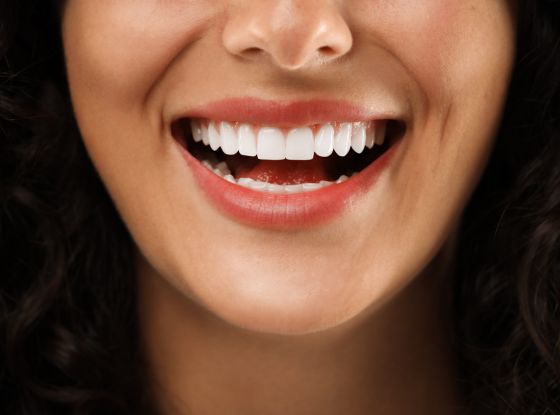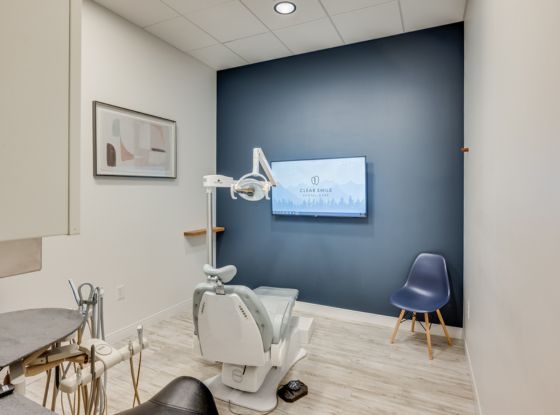Signs You Need a Root Canal Treatment

Signs You Need a Root Canal Treatment in Highlands Ranch, CO
Root canal treatment is a procedure that can save a tooth that has become severely infected or damaged. While the idea of a root canal can seem daunting, it’s a common and effective treatment that helps maintain your natural tooth and restore your smile. At Clear Smile Dental Care, we understand the importance of early detection, and knowing when a root canal may be necessary is key to preventing further complications.
So, how can you tell when you need a root canal? Let’s dive into the signs and symptoms that may indicate this treatment is required.
What Is a Root Canal?
Before we get into the symptoms, it’s essential to understand what a root canal is. The procedure involves removing the infected or damaged pulp (the soft tissue inside your tooth) and cleaning the root canals. After the tooth is thoroughly cleaned, it is sealed and restored with a crown or filling to ensure its strength and functionality. Root canal treatment helps to preserve your natural tooth, preventing the need for extraction.
Common Signs You Need a Root Canal
1. Persistent Tooth Pain
Tooth pain is one of the most common signs that something is wrong with your tooth. If you’re experiencing sharp, throbbing pain, especially when chewing or touching the tooth, it could be a sign that the pulp inside your tooth is infected or damaged. This type of pain typically doesn’t subside and may worsen over time, especially when the tooth is exposed to hot or cold temperatures.
If you’re noticing that your tooth hurts when you bite down or when you eat or drink hot or cold foods, it could be time to see the best dentist in Highlands Ranch, CO, to determine if a root canal is necessary.
2. Sensitivity to Hot and Cold
A tooth that’s highly sensitive to hot and cold foods or beverages can be a warning sign of an infection in the pulp. While some tooth sensitivity is common, prolonged discomfort that lingers even after you remove the hot or cold stimulus could indicate a deeper issue that requires a root canal.
If you find that the sensitivity doesn’t go away or worsens over time, it’s essential to have the tooth checked by a professional. In many cases, a root canal can relieve this discomfort and restore the health of your tooth.
3. Swollen or Tender Gums
If your gums are swollen, tender, or even discolored near a particular tooth, this could signal an infection in the tooth that is affecting the surrounding tissues. Sometimes, a pimple-like bump on the gum (called a dental abscess) may form, which can release pus. This is a clear indication of infection and may require a root canal to address the problem.
Swollen gums, in combination with persistent pain, are common signs that you need to see a dentist immediately. An untreated infection can spread, potentially leading to more serious health issues.
4. Darkening of the Tooth
A darkening or discoloration of a tooth may be another indication that you need a root canal. When the pulp inside the tooth becomes infected or injured, it can lead to a change in the tooth’s color, making it appear darker than the surrounding teeth. This discoloration occurs due to the breakdown of the pulp and the accumulation of blood or pus inside the tooth.
If you notice a tooth becoming darker, it’s important to get it evaluated by the best dentist in Highlands Ranch, CO, as this could be a sign of an infection deep within the tooth that may require a root canal.
5. Loose Tooth
A tooth that feels loose or unstable may be an indication that the infection in the tooth has reached the root and is affecting the supporting structures. In severe cases, the infection may have spread to the bone and tissue that hold the tooth in place. This can cause the tooth to become loose and may make it difficult to bite or chew.
If you experience this symptom, it’s important to see a dentist right away to determine whether a root canal or another treatment is necessary to save the tooth.
6. Persistent Bad Taste or Odor
If you notice a bad taste in your mouth or a persistent odor, it could be a sign that an infection in your tooth has spread to the surrounding tissues. Infections in the pulp can sometimes lead to the formation of abscesses, which can cause foul-smelling or bad-tasting drainage to seep into your mouth.
If you experience these symptoms, it’s important to see a dentist as soon as possible. A root canal may be necessary to remove the infection and prevent it from spreading further.
What to Do If You Experience These Symptoms
If you’re experiencing any of these symptoms, it’s essential to schedule an appointment with the best dentist in Highlands Ranch, CO, as soon as possible. Delaying treatment can lead to more severe complications, including the potential loss of the tooth. During your appointment, your dentist will assess the condition of the tooth, take X-rays, and discuss the best course of action for treatment.
Why You Should Choose Clear Smile Dental Care
At Clear Smile Dental Care, we prioritize patient comfort and well-being. If you suspect you need a root canal or are experiencing any of the symptoms mentioned above, we encourage you to reach out to our team for a consultation. We are here to provide professional, gentle care that will help restore your smile and prevent further damage to your teeth.
Our experienced team of dental professionals can guide you through the entire process, ensuring that you feel confident and comfortable every step of the way.
Contact Us
While the idea of a root canal may seem intimidating, it’s often the best way to preserve your natural tooth and prevent further complications. If you’re experiencing persistent tooth pain, sensitivity, swollen gums, or other concerning symptoms, don’t wait—schedule an appointment with the best dentist in Highlands Ranch, CO, today.
A root canal treatment can help you restore your smile and get back to living pain-free. Trust Clear Smile Dental Care for all your dental needs, and let us help you maintain a healthy, beautiful smile for years to come.


